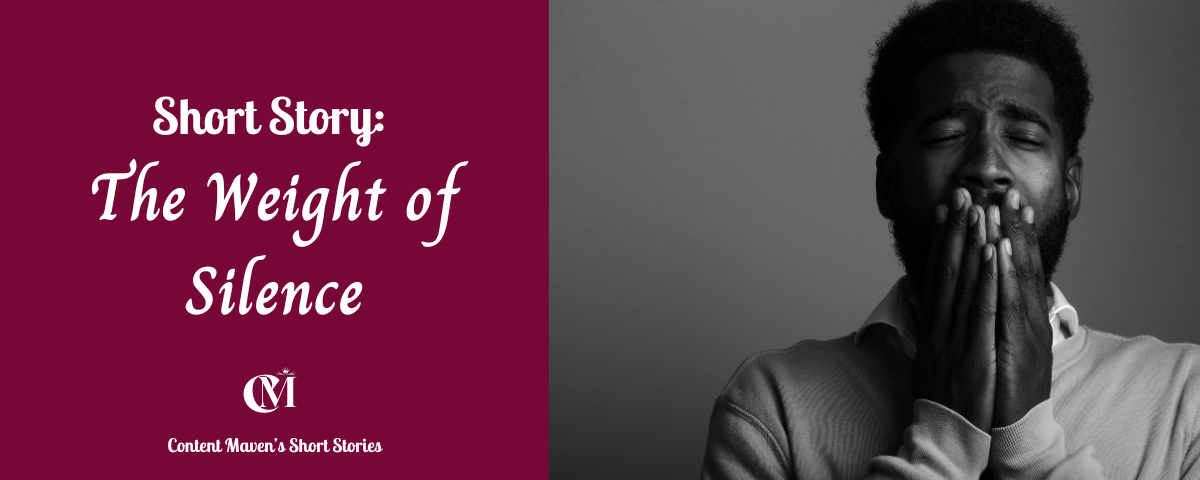Chinedu Okonkwo grew up in a modest bungalow in Surulere, Lagos. The house was always filled with the sounds of his mother, Nneka, bustling about—chopping vegetables, haggling with customers over the phone for her fabric business, or humming hymns under her breath. His father, Emeka, was a quiet man, a civil servant who spent his evenings sitting in his armchair, reading the newspaper or watching the evening news.
Chinedu was a quiet child, often overlooked in the chaos of daily life. When he scraped his knee playing football with the neighborhood boys, he bit his lip and held back tears. “Boys don’t cry,” his father said, barely glancing up from his newspaper. “Be strong.”
His mother, though kind, was too preoccupied with her business to notice the sadness in her son’s eyes. “Chinedu, go and play,” she said when he lingered too long in the kitchen. “Don’t disturb me now.”
So Chinedu learned to keep his feelings to himself. When his best friend, Tunde, moved to Abuja, he didn’t cry. When he failed his math exam, he didn’t complain. He simply carried on, a silent boy in a noisy world.
♠♥♣
Years later, Chinedu became a successful accountant in Victoria Island. He married Amara, a vibrant woman who loved to laugh and talk. She was everything he wasn’t—expressive, emotional, and full of life. At first, her energy fascinated him. But as the years went by, her openness began to feel like a mirror, reflecting his own emotional emptiness.
“Chinedu, you’re like a stone,” Amara said, her voice tinged with frustration. “I don’t know what you’re thinking or feeling. How can I love someone who doesn’t let me in?”
Chinedu didn’t know how to respond. He had spent so many years silencing his emotions that he no longer knew how to access them. When their son, Kenechukwu, was born, Chinedu struggled to connect with him. He provided for his family—paying for Kenechukwu’s school fees, buying him toys, and ensuring they lived in a comfortable home—but he remained emotionally distant.
Kenechukwu, now eight years old, was a lively boy who loved football and storytelling. He often tried to engage his father, asking him to play or tell him stories about his childhood. But Chinedu simply patted his head and said, “Not now, Kene. Daddy is busy.”
♠♥♣
One evening, Kenechukwu asked his father why he never came to his football matches. “You don’t talk or play with me. Don’t you like me, Daddy? ” he asked, his voice trembling.
Chinedu froze. He wanted to say something, to hug his son and tell him he cared, but the words wouldn’t come. Instead, he muttered, “I’m busy with work,” and walked away.
That night, Amara confronted him. “Chinedu, you’re breaking our son’s heart. If you don’t change, you’ll lose him forever.”
Her words echoed in his mind long after she had gone to bed. Chinedu sat in the living room, staring at the family photos on the wall. There was Kenechukwu’s first birthday, his tiny face smeared with cake.
There was their wedding day, Amara radiant in her lace gown. And there was a photo of Chinedu as a boy, standing stiffly beside his father, both of them unsmiling. For the first time, Chinedu allowed himself to feel the weight of his silence.
♠♥♣
The next day, Chinedu made an appointment with a therapist, Dr. Adebayo, a kind woman with a gentle voice. At first, he struggled to open up, his words halting and awkward. But over time, he began to unpack the emotional neglect he had endured as a child.
“Your father’s stoicism wasn’t just about strength,” Dr. Adebayo said. “It was a way of coping with his own pain. But that doesn’t mean you have to carry it forward.”
Chinedu began to see his father in a new light. Emeka had grown up in a time when men were expected to be providers, not nurturers. He had done his best, but his best had left scars.
One weekend, Chinedu visited his parents. Emeka, now retired, was quieter but still reserved. They sat together on the veranda, sipping palm wine in silence. Finally, Chinedu spoke.
“Dad, I need to tell you something. Growing up, I felt like my feelings didn’t matter. It hurt me, and it’s still affecting me today.”
Emeka looked at his son, his eyes softening. “Chinedu, I didn’t know. I thought I was making you strong. I’m sorry.”
It was the first time Chinedu had ever heard his father apologize.
♠♥♣
Chinedu began to open up to Amara and Kenechukwu. He attended his son’s football matches, cheering loudly from the sidelines. He learned to say “I love you” and mean it.
One evening, as they sat together watching the sunset, Kenechukwu turned to him and said, “Daddy, I’m glad you’re here.”
Chinedu smiled, his heart full. For the first time in his life, he felt truly seen and heard. Amara reached for his hand, her eyes shining with tears. “We’re proud of you, Chinedu.”
As the sun dipped below the horizon, Chinedu felt a sense of peace he had never known. The weight of silence had been heavy, but he was learning to let it go.


